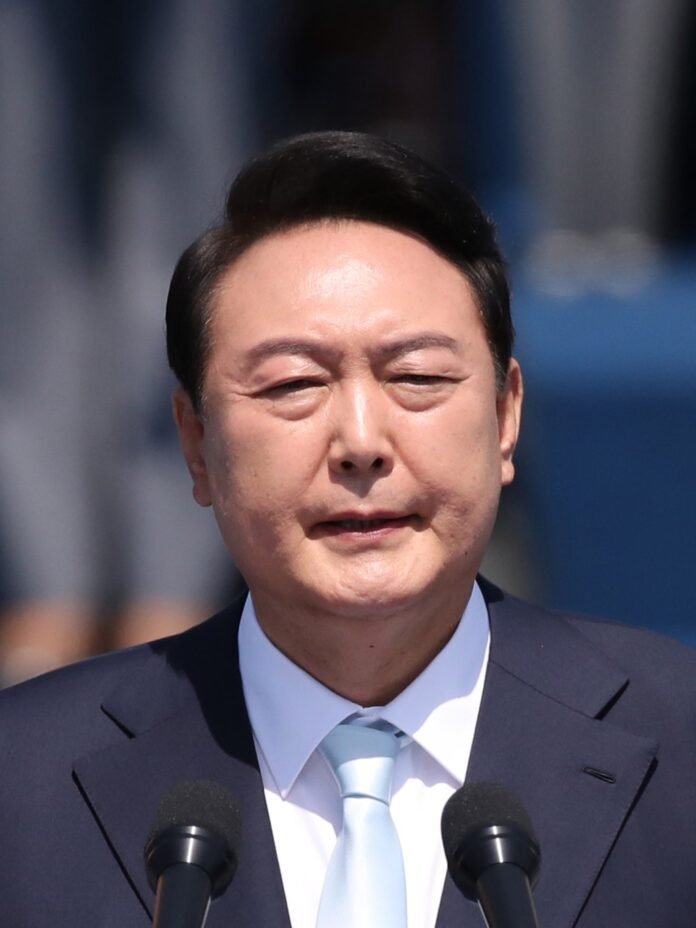Yoon’s six-hour martial law stunt has shattered his career and stunned South Korea’s democracy
South Korea, long admired for its stable democracy and global cultural clout, has watched in disbelief as its own president fell in disgrace—ousted by the Constitutional Court for abusing his powers by declaring martial law.
President Yoon Suk Yeol, a former prosecutor once lauded for his uncompromising pursuit of justice, stunned the nation and the world last December when he ordered the military to seize control of the country. The martial law lasted just six hours. But the damage was already done. The fallout has been swift, brutal, and irreversible.
On Friday, the court handed down its ruling: Yoon had overstepped every constitutional line. He was permanently removed from office.
What led a leader—once seen as principled and fearless—to such a drastic and authoritarian move?
To understand that, one must go back to Yoon’s roots. His childhood friend Chulwoo Lee recalls a young Yoon who was big for his age, sharp, and possessed of a relentless will to win. Even as a boy, he was known for his explosive temper and obsessive drive. “Once he decides something,” Lee said, “he drives it forward in a very extreme way.”
Embed from Getty ImagesThese traits followed him into adulthood. As a prosecutor, Yoon refused to back down from powerful enemies, famously investigating South Korea’s intelligence agency despite orders not to. He prosecuted conservative and liberal politicians alike, jailing even former president Park Geun-hye. This earned him both enemies and fans from across the political spectrum.
But according to those close to him, Yoon’s strengths became his weaknesses. Friends say his refusal to compromise and his deep distrust of others grew more extreme as he entered politics. He had no political base, no loyal party faction—just a small circle of confidants and a growing belief that only he could save the country.
After winning the presidency by the slimmest margin in South Korean history—just 0.7%—Yoon seemed increasingly isolated. He ignored aides, clashed with parliament, and leaned on advice from hard-right allies and conspiracy-peddling YouTubers. He believed the opposition was infiltrated by North Korea sympathisers. Friends say he became convinced that the country faced an existential threat from within.
Yoon’s former campaign strategist, Kim Keun-sik, admitted he deeply regretted backing him. “He didn’t listen. He only did what he pleased,” Kim said. Even in the Blue House, dissenting voices were silenced. One aide recalled that Yoon argued loudly and dismissed opposing views with intimidating force.
He began ruling by executive order, blocking parliamentary decisions with vetoes and facing retaliation from the legislature in the form of budget cuts, impeachment attempts, and a probe into his wife’s luxury gifts.
When the opposition strengthened after a brutal election defeat for Yoon’s party, he snapped.
On 3 December, he activated martial law—an extraordinary and undemocratic move. Crowds flooded the streets in outrage. The military hesitated. Parliament rebelled. Yoon cancelled the order within hours, but it was too late. The court stepped in.
His own supporters have been left reeling. Long-time confidant Shin says Yoon’s belief that he alone could protect democracy led him to destroy it. “This was exactly how he lived as a prosecutor. Only Yoon could have done this.”
Lee, once Yoon’s closest friend, now sees only delusion. “He jeopardised our democracy because he thought he was saving it.”
South Korea has since begun the process of recovering from the political shockwave. But the legacy of Yoon Suk Yeol—a man brought down by his own rigid belief in righteousness—will haunt its institutions for years to come.
